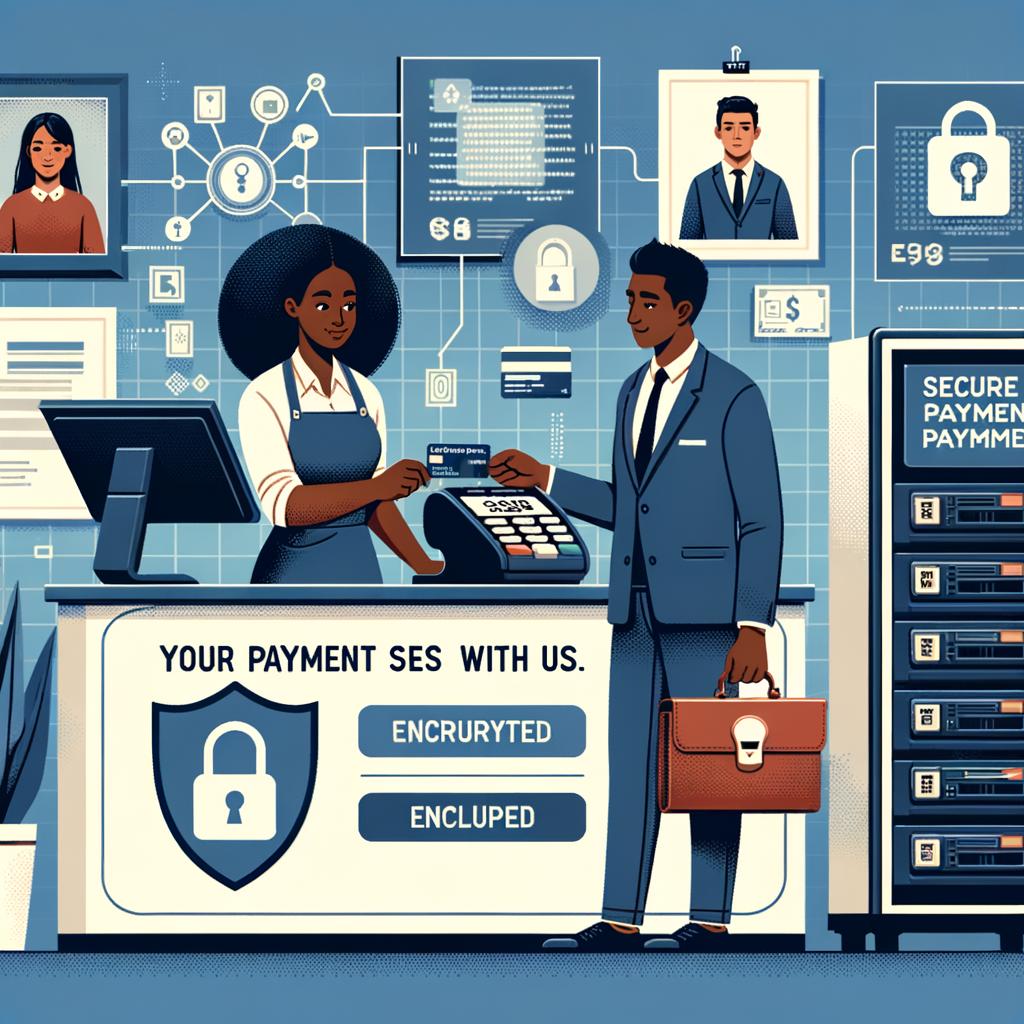Cybersecurity Measures for Small Businesses in Card Processing
With the rise of online transactions and digital payments, small businesses are facing increasing risks of cyber threats. Ensuring the security of card processing information has become a top priority for these entrepreneurs. In this article, we will explore innovative cybersecurity measures tailored specifically for small businesses to protect their card processing systems from potential breaches. Let’s dive into the world of cyber defense and safeguard your business from the unseen dangers of the digital realm.
Creating a Secure Payment Environment for Your Small Business
In today’s digital age, ensuring the security of your customers’ payment information is paramount for small businesses. Implementing strong cybersecurity measures is essential to protect sensitive data from cyber threats and maintain trust with your customers. By following best practices in card processing, you can create a secure payment environment that safeguards your business and customer data.
One key cybersecurity measure for small businesses is to use encryption technology to secure card transactions. Encrypting data ensures that any information exchanged between your business and the payment processor remains confidential and protected from cybercriminals. Additionally, regularly updating your payment systems and software helps to patch vulnerabilities and strengthen your defenses against potential security breaches. By investing in cybersecurity measures, you not only protect your business but also demonstrate your commitment to safeguarding your customers’ sensitive information.
Understanding Common Cybersecurity Risks in Card Processing
When it comes to processing card payments, small businesses face a myriad of cybersecurity risks that can compromise sensitive customer data. One common risk is phishing attacks, where scammers attempt to steal login credentials or personal information through deceptive emails or websites. Another prevalent threat is malware infections, which can infiltrate a business’s systems and steal payment card information. Small businesses must be proactive in implementing cybersecurity measures to protect themselves and their customers.
One effective cybersecurity measure is implementing multi-factor authentication (MFA), which adds an extra layer of security by requiring users to provide two or more forms of verification before accessing sensitive data. Additionally, small businesses can encrypt their payment card data to ensure that it is secure during transmission and storage. Regular software updates and patches are also crucial in preventing cyber attacks, as outdated software can leave vulnerabilities that hackers can exploit. By taking these proactive steps, small businesses can mitigate the risks associated with card processing and protect their customers’ information.
Implementing Strong Encryption and Tokenization Protocols
Ensuring the security of your customers’ payment information is crucial for any small business that processes card transactions. By implementing strong encryption and tokenization protocols, you can protect sensitive data from cyber threats and potential breaches.
Encryption scrambles data into a code that can only be deciphered with the right key, making it unreadable to unauthorized users. Tokenization replaces card numbers with randomized tokens, further securing the payment process. These advanced security measures not only safeguard your customers’ information but also enhance your business’s reputation for trust and reliability.
Training Employees on Phishing Scams and Social Engineering Tactics
When it comes to cybersecurity measures for small businesses involved in card processing, is crucial. Phishing scams and social engineering tactics are some of the most common ways hackers gain access to sensitive information, such as credit card details or personal data. By educating your employees on how to identify and avoid falling victim to these scams, you can significantly reduce the risk of a data breach.
Some key points to cover in employee training include:
- Recognizing suspicious emails: Teach employees how to spot telltale signs of a phishing email, such as misspelled URLs or requests for sensitive information.
- Avoiding social engineering tactics: Discuss with your team common social engineering tactics used by hackers, such as pretexting or baiting, and how to respond appropriately.
Concluding Remarks
So there you have it, folks! By implementing these cybersecurity measures for your small business in card processing, you can ensure that your customers’ sensitive information remains safe and secure. Remember, the digital world may be full of threats, but with the right precautions in place, you can stay one step ahead of the hackers. So go forth, protect your data, and keep on thriving in the digital age! Stay safe and secure out there, and happy processing!






